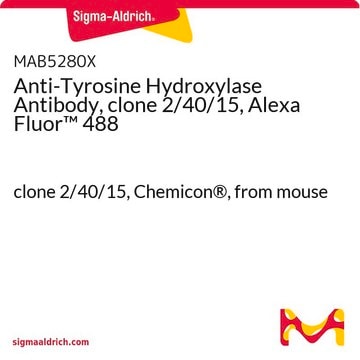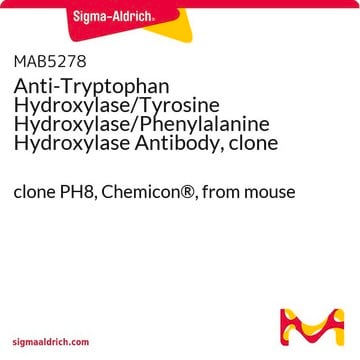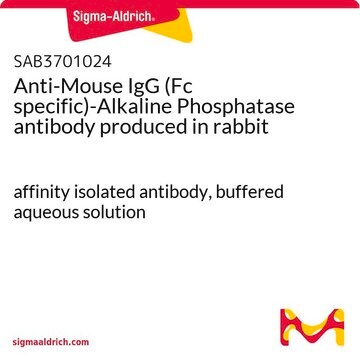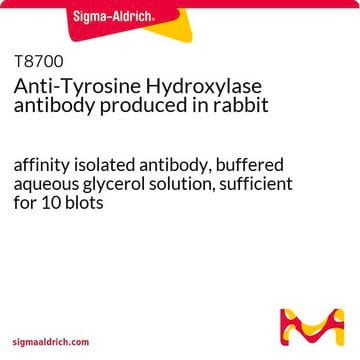SAB4200699
Anti-Tyrosine Hydroxylase antibody, Mouse monoclonal
clone TH-2, purified from hybridoma cell culture
Sinónimos:
TH, TYH
About This Item
Productos recomendados
biological source
mouse
Quality Level
antibody form
purified immunoglobulin
antibody product type
primary antibodies
clone
TH-2, monoclonal
form
buffered aqueous solution
species reactivity
rabbit, human, sheep, guinea pig, rat, bovine, mouse
concentration
~1.0 mg/mL
technique(s)
immunoblotting: 0.25-0.5 μg/mL using whole extracts of rat PC-12 cells.
isotype
IgG1
shipped in
dry ice
storage temp.
−20°C
target post-translational modification
unmodified
Gene Information
human ... TH(7054)
Categorías relacionadas
General description
Immunogen
Application
Biochem/physiol Actions
Physical form
Disclaimer
¿No encuentra el producto adecuado?
Pruebe nuestro Herramienta de selección de productos.
Optional
Storage Class
10 - Combustible liquids
wgk_germany
WGK 1
flash_point_f
Not applicable
flash_point_c
Not applicable
Certificados de análisis (COA)
Busque Certificados de análisis (COA) introduciendo el número de lote del producto. Los números de lote se encuentran en la etiqueta del producto después de las palabras «Lot» o «Batch»
¿Ya tiene este producto?
Encuentre la documentación para los productos que ha comprado recientemente en la Biblioteca de documentos.
Los clientes también vieron
Nuestro equipo de científicos tiene experiencia en todas las áreas de investigación: Ciencias de la vida, Ciencia de los materiales, Síntesis química, Cromatografía, Analítica y muchas otras.
Póngase en contacto con el Servicio técnico









